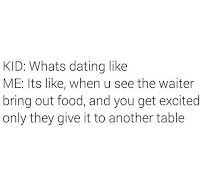Is our goal to merely survive the day, or do we really try to experience the pain of Tisha B'Av, and why is this so difficult for so many of us?
We know everything that happened on Tisha B'Av: how the meraglim returned from scouting Eretz Yisroel and cried for no reason, and Hashem declared that He would provide the Jewish nation with a reason to cry, making this day a day of mourning for the Jewish people. It was to the day, years later, that both the first and second Batei Mikdash were destroyed. At a subsequent time in history, the capture and massacre of the inhabitants of Beitar took place, and later Turnus Rufus plowed the site of the Beis Hamikdash and its surroundings, which signified the finality of its destruction. As a nation we've been through The Crusades, Pogroms, The Inquisition, The Holocaust, and countless other attacks on Jewish lives. Every single bit of suffering we've experienced up until present times is an outgrowth of the Churban; we are still feeling the effects of the destruction today.
There is so much suffering in the world, be it loss of human life in various forms – murders, drownings, what-have-you, or the myriads of challenges that we face every day on an individual level, like financial/job difficulties, divorce, sickness, shidduchim difficulties, injuries, addiction, abuse, infertility, baseless hatred, losing connection to HKB"H, poverty, mental illness, scandals, among other mishaps and misfortune. My suffering, even the "simple" pain of not being married, or the heartache from a breakup, is connected to the Churban. It may be difficult for us to cry over the destruction that took place 2,000 years ago, but it's not that hard to mourn the loss and hurt that we experience all too routinely.
We know everything that happened on Tisha B'Av: how the meraglim returned from scouting Eretz Yisroel and cried for no reason, and Hashem declared that He would provide the Jewish nation with a reason to cry, making this day a day of mourning for the Jewish people. It was to the day, years later, that both the first and second Batei Mikdash were destroyed. At a subsequent time in history, the capture and massacre of the inhabitants of Beitar took place, and later Turnus Rufus plowed the site of the Beis Hamikdash and its surroundings, which signified the finality of its destruction. As a nation we've been through The Crusades, Pogroms, The Inquisition, The Holocaust, and countless other attacks on Jewish lives. Every single bit of suffering we've experienced up until present times is an outgrowth of the Churban; we are still feeling the effects of the destruction today.
There is so much suffering in the world, be it loss of human life in various forms – murders, drownings, what-have-you, or the myriads of challenges that we face every day on an individual level, like financial/job difficulties, divorce, sickness, shidduchim difficulties, injuries, addiction, abuse, infertility, baseless hatred, losing connection to HKB"H, poverty, mental illness, scandals, among other mishaps and misfortune. My suffering, even the "simple" pain of not being married, or the heartache from a breakup, is connected to the Churban. It may be difficult for us to cry over the destruction that took place 2,000 years ago, but it's not that hard to mourn the loss and hurt that we experience all too routinely.
I don't know about you, but I hate feeling sad. Some people have a hard time connecting to the feeling; they shut it out, because it's too uncomfortable. Many people don't know what to do with it or how to express it. When we do feel it, it is easy to get stuck in its downward spiral, the vortex that easily sucks you in to the feeling that things are hopeless, you can't do anything productive, and you will never feel happy again. We don't want to get lost in it, so we push it away; we try to avoid it altogether. Surely we all have what to cry about, but we've compartmentalized it in order to lead a productive life, and so it's hard to access on Tisha B'Av.
How doth she sit in solitude?
בָּכוֹ תִבְכֶּה בַּלַּיְלָה, וְדִמְעָתָהּ עַל לֶחֱיָהּ-אֵין-לָהּ מְנַחֵם
She weepeth sore in the night, and her tears are on her cheeks; she hath none to comfort her...
Sadness is about loss. We need to work on honoring this loss, mourning this loss (what qualifies as your personal churban), instead of disconnecting from it. It's all an outgrowth of the Churban.
Mr. Charlie Harary spoke tonight at the Chazaq event about how the "weird" feeling that we experience during The Three Weeks and The Nine Days is Hashem removing His Presence from among us. It often takes not having something to recognize its value. Therefore, Charlie Harary says, the "zoche" of "Kol hamisabel al Yerushalyim zoche v'roeh b'simchasa," is in present tense. We won't be worthy sometime in the future, but if we mourn properly, we will be able to truly see and feel the happiness of Jerusalem right now. Mourning is not simply sadness; it is yearning, lamenting, for what was, he explains. When we can do this properly, our sadness has a direction; it is a wish, a hope, to live more within Hashem's Presence. When we have this perspective, we invite more happiness, positivity into our lives.





















